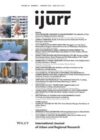This article examines Cameroon’s modern land policy. Initially, it traces the policy’s roots to the colonial era. As the only African country that came under the control of three European colonial powers, viz. Germany, Britain and France, Cameroon provides a unique opportunity to understand colonialism’s influence on Africa’s persistent land problem. This is because the problem is structurally embedded in the historical processes of colonial rule. The heart of the article focuses on the policy’s provisions for land tenure formalization, especially the land titling process. Of interest are the implications of this process for questions of equity, fairness and justice as they relate to access to land in the country. It suggests that, contrary to what proponents claim, land tenure formalization is not a panacea enabling capital accumulation for all. The article marshals evidence to show that the land tenure formalization requirements in Cameroon have effectively served to aggravate socioeconomic inequalities in the country. This is especially because the requirements favour societal elites, including bureaucrats, politicians and entrepreneurs. The article concludes that, by making government‐issued land titles the unique testament to landownership, the country’s indigenous authorities have aggravated the problem of inequitable, unfair and unjust access to land that they inherited from their colonial predecessors.
Details
Written by:
Ambe J. Njoh
Digital Object Identifier (DOI)
10.1111/j.1468-2427.2012.01168.x
About DOI
Read full article as PDF
Read full article as HTML
See the references for this article
